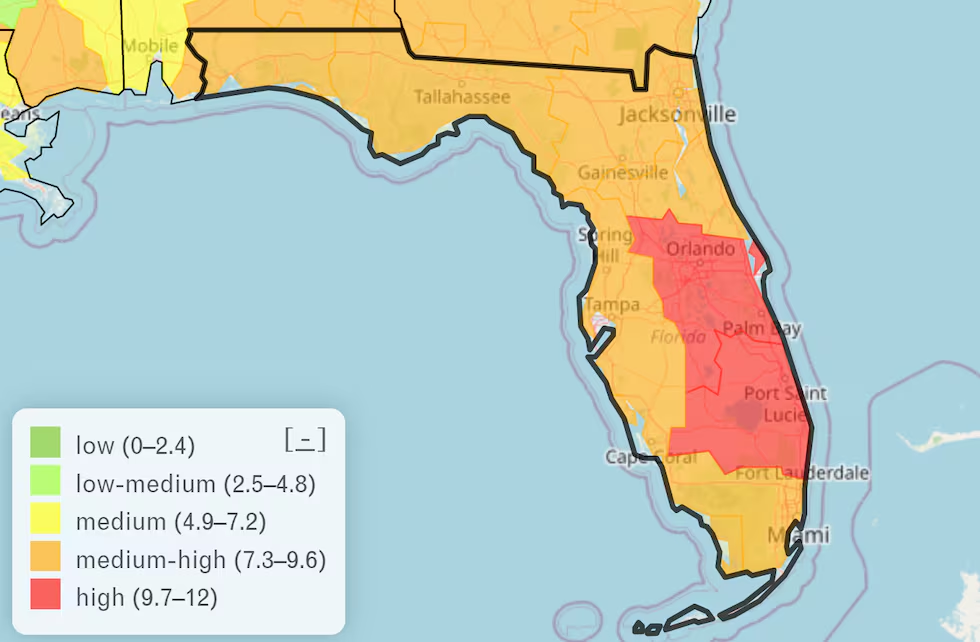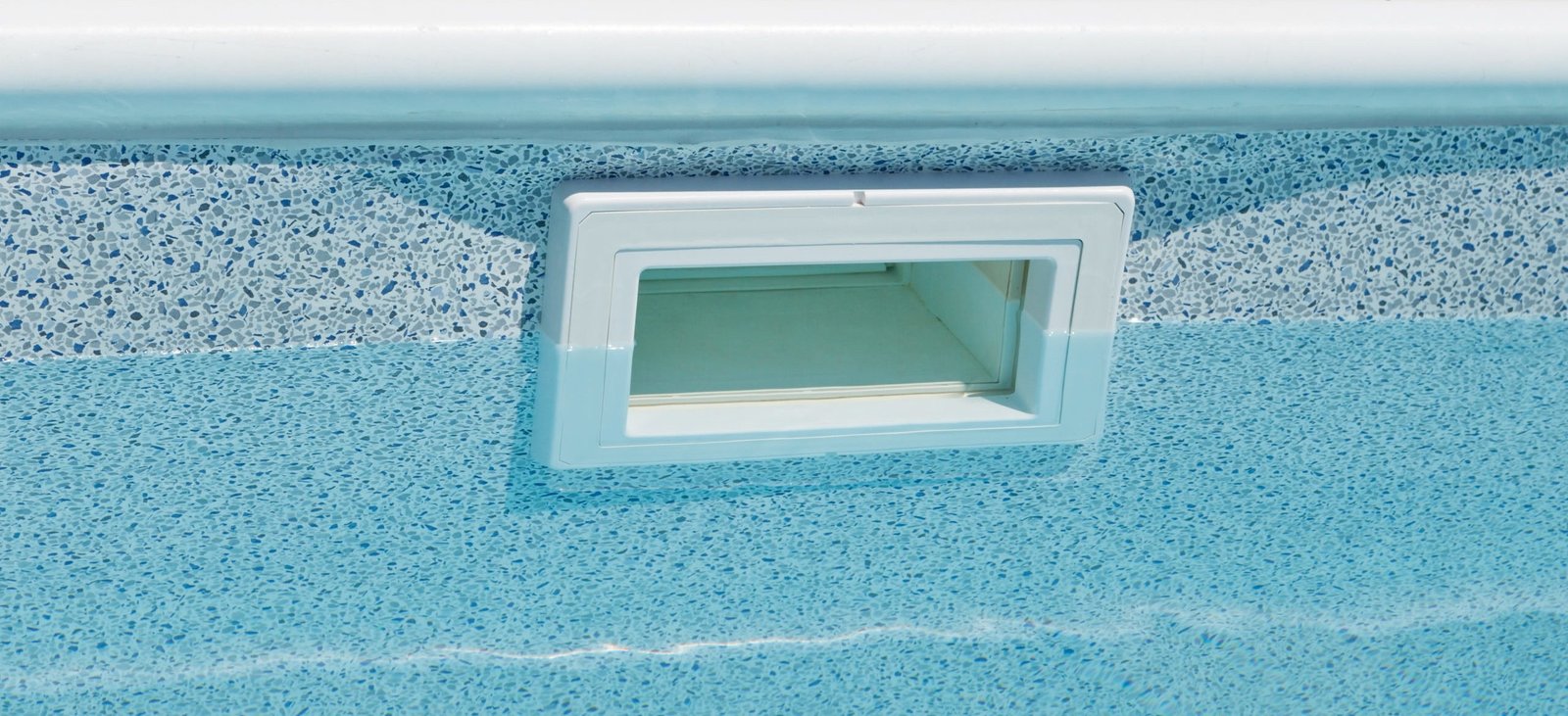Hello, pool owners! It’s Florida’s pollen season (March, April and also September), and this can impact your pool in a few ways.
After cleaning, you might notice your pool getting dirty again, especially on windy days. Pollen can also affect the water flow by clogging the filter cartridge, which we usually clean once a month. Additionally, pollen contributes to higher phosphate levels in the water, which can promote algae growth.
Please remember, phosphate is not tested weekly as it’s not included in the regular service. If phosphate removal treatment is ever needed, we’ll be sure to recommend it.
Understanding the Impact of Pollen Season on Your Pool
As many of you know, Florida’s pollen season can bring some unique challenges when it comes to maintaining your pool. While you might not think about pollen affecting your pool care routine, it can have some noticeable impacts that are important to keep in mind. Let’s break down a few of these effects and how they can affect the cleanliness and performance of your pool.
What Happens After Pool Cleaning During Pollen Season?
One of the most immediate effects of the pollen season is the accumulation of pollen in your pool after a cleaning session. You may notice that your pool looks dirty again shortly after we’ve cleaned it, especially if the weather is windy. Pollen can easily blow into your pool, landing on the water’s surface, and when combined with debris and dust, it can quickly make the water appear cloudy or dirty again.
You can easily spot pollen if they have these characteristics:
- Pollens sticks to the pool tile at the waterline
- Pollens sticks inside the skimmer
- Pollen is often seen in corners because the wind easily blows them
- Pollen dissolves and can sink underwater, often on the dark side of the pool
- Pool water feels sticky as if your hair gel is mixed in
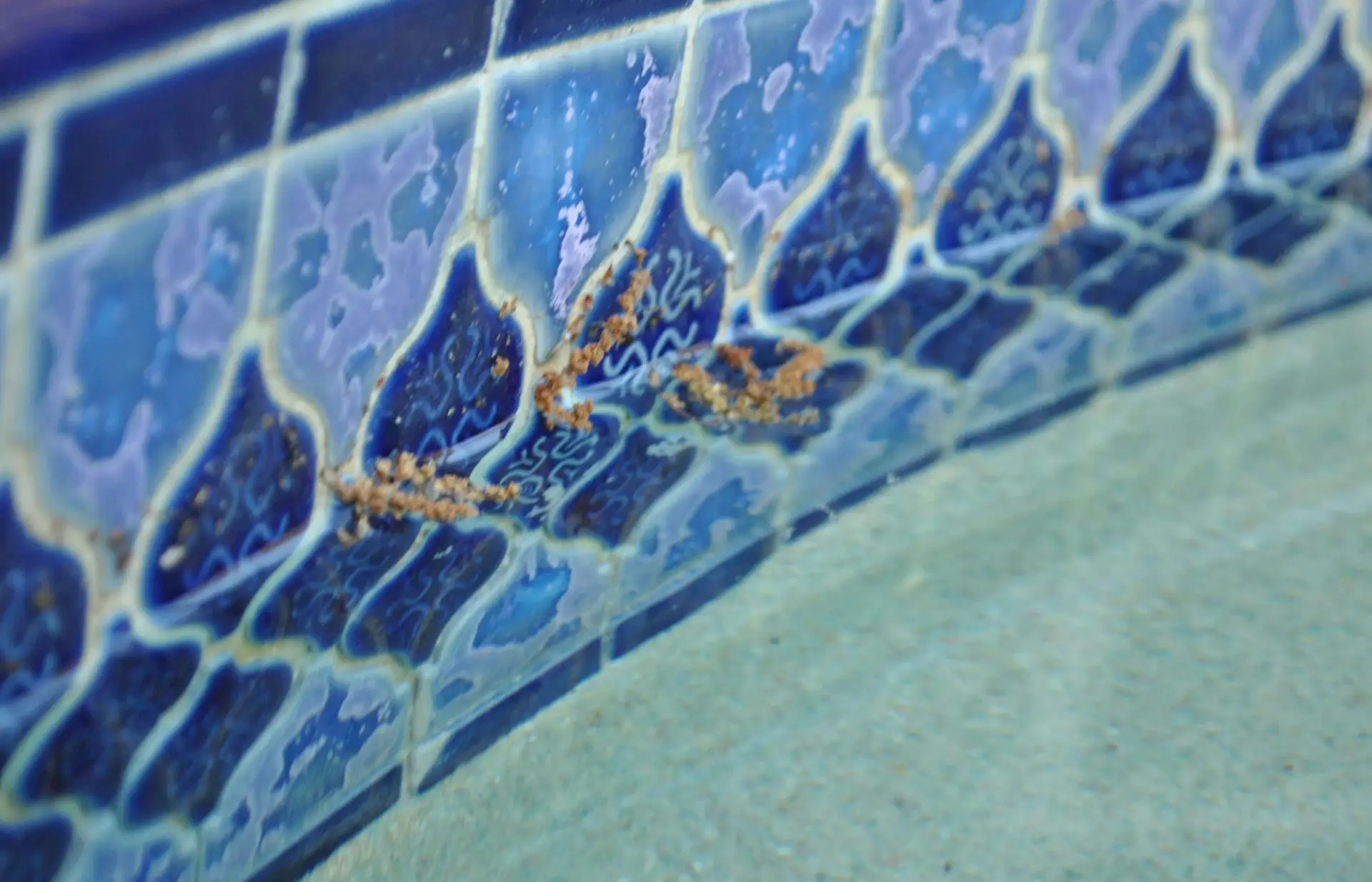
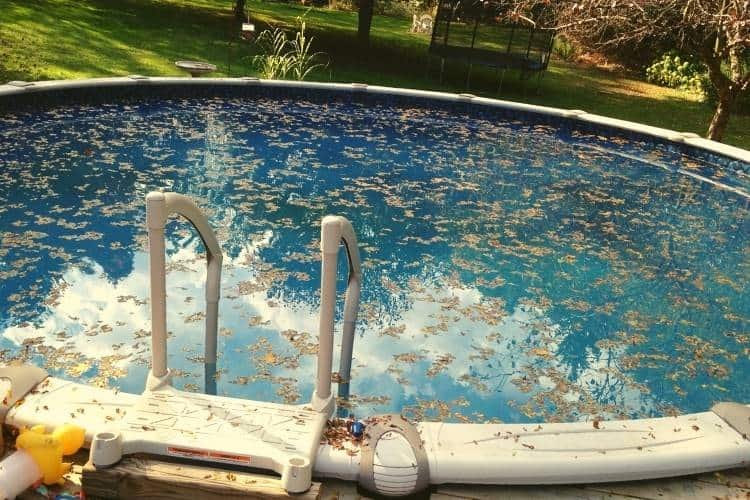
What Is Pollen?
Pollen consists of tiny spores that plants release during their reproductive cycle. The yellow dust you see covering cars, pools, and walkways is often from trees like oak and pine, which produce wind-blown pollen. While essential for plant fertilization, pollen can be a major nuisance, especially for allergy sufferers.
Oak trees, in particular, release heavy amounts of pollen, making spring challenging for many. As pollen season approaches, now is the perfect time to prepare your home and pool to minimize its impact and keep everything clean and functioning smoothly.
Impact on the Pool’s Water Flow
Another important issue to consider is how pollen affects the filtration system. Pollen particles can clog the filter cartridge more quickly than usual, and while we clean the filter on a monthly basis, this accelerated clogging can cause the filter to lose its effectiveness in circulating and cleaning the water. Over time, if the filter is clogged too soon, it could potentially reduce the efficiency of the pool’s water flow and filtration.
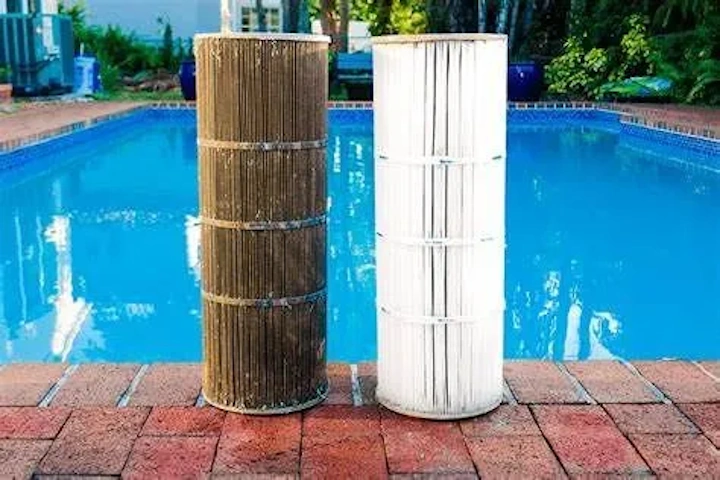
Pollen and Phosphate Levels
Pollen can also lead to an increase in phosphate levels in your pool’s water. Phosphates are one of the key contributors to algae growth. While they are naturally occurring, an excess of phosphate can fuel algae blooms, turning your crystal-clear pool into a green, cloudy mess. It’s important to note that phosphate levels are not tested weekly during our regular service, as they are not included in the standard pool cleaning service. However, if we notice any signs of algae or other water quality issues, we will always recommend phosphate removal treatment when necessary.
Phosphate? What is it?
When high phosphates level are present in a pool, it can contribute:
- Algae Growth: Phosphates act as a nutrient source for algae, promoting their growth. High phosphate levels can lead to more frequent algae blooms and make it challenging to control algae in the pool.
- Cloudy Water: Phosphates can contribute to water cloudiness by promoting the growth of organic matter, such as algae and bacteria, which can affect water clarity.
- Chlorine Demand: High phosphate levels can increase the demand for chlorine in the pool. This means more chlorine is required to maintain adequate sanitation levels, leading to increased chlorine consumption and potentially higher costs for pool maintenance.
Phosphates can enter the pool water through various sources, including:
- Rainwater: Phosphates can be present in rainwater, which can wash contaminants like dust, debris, and fertilizers into the pool.
- Lawn and Garden Runoff: Fertilizers, pesticides, and organic matter from nearby lawns and gardens can leach into the pool water through runoff during rain or irrigation.
- Organic Debris: Leaves, pollen, grass clippings, and other organic debris that fall into the pool can contain phosphates, which are then released into the water as they decompose.
- Swimmers: Sunscreen, sweat, and body oils from swimmers can contain phosphates, which are introduced into the water during swimming activities.
- Tap Water: Some municipal water sources may contain trace amounts of phosphates, which can be introduced into the pool water when adding fresh water through backwashing, topping off, or refilling.
What You/We Can Do
While pollen season is unavoidable, we’re committed to helping you keep your pool in the best condition possible. We’ll keep a close eye on your pool, monitor the filter condition, and keep track of water quality. If we notice that the pollen is significantly impacting your pool, we’ll let you know and provide solutions to keep everything running smoothly.
If phosphate removal or other treatments are required, rest assured that we’ll recommend them as part of a tailored solution to keep your pool clean and healthy.
Conclusion
We know Florida’s pollen season can be a challenge, but with Pool by Pros by your side, we’ll ensure that your pool continues to shine throughout the season. If you have any concerns or questions about how the pollen season is affecting your pool, please don’t hesitate to reach out. We’re here to help!
Thank you for trusting Pool by Pros with your pool care needs.
Pollen Florida Map
